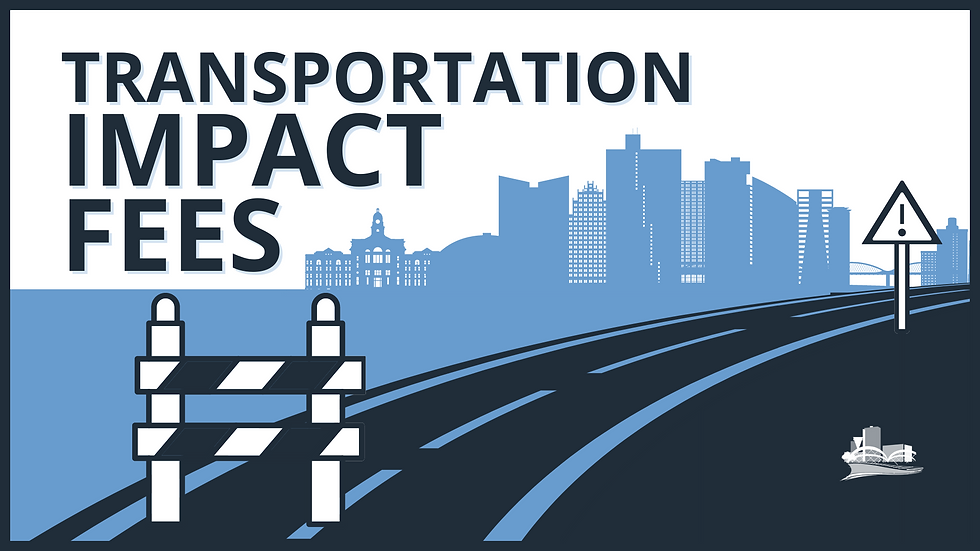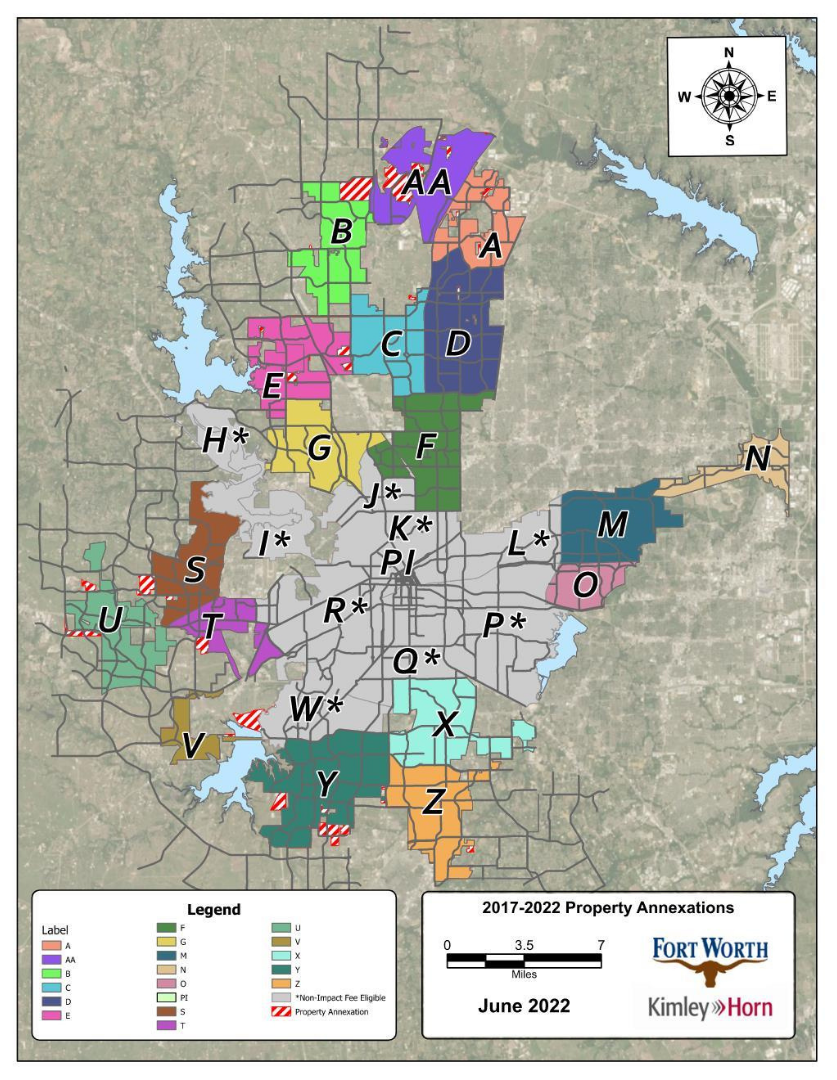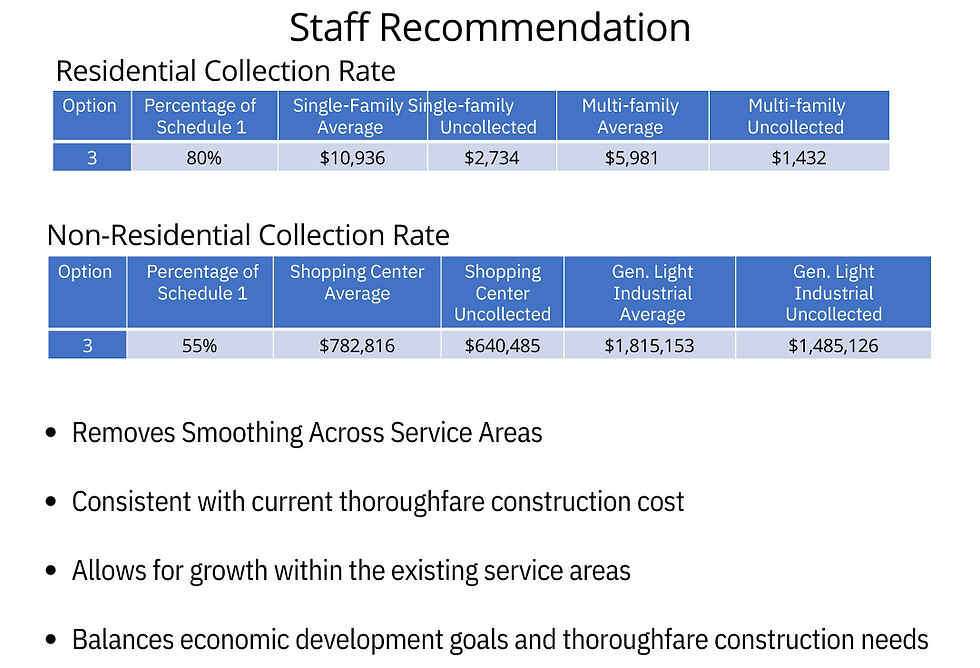2022 Transportation Impact Fee Study
- The Real Estate Council of Greater Fort Worth

- Aug 23, 2022
- 3 min read
Updated: Sep 14, 2022

On August 16, 2022, Mirian Spencer and DJ Harrell of the City of Fort Worth Development Services Department presented the 2022 Transportation Impact Fee Study findings to the Real Estate Council of Greater Fort Worth's Government Affairs Committee.
The Transportation Impact Fee Ordinance was first enacted by the City of Fort Worth in 2008, allowing the city to levy fees on new development projects to provide additional capacity to the roadway network or intersections outlined in the Transportation Improvement Plan. Impact fees cannot be used for the maintenance of existing roads.
REC of GFW participated in the early negotiations around the Impact Fee, and after initially opposing the fees, the REC board approved an acceptable amended impact fee schedule.
According to Chapter 395 of the Texas Local Government Code, impact fees must be evaluated at least every five years. The Real Estate Council has been involved in fee negotiations since 2008.
The presentation, which includes current staff recommendations for future fees, is available for review below.
The Real Estate Council's Response
On August 30, the Government Affairs Committee will meet to discuss these recommendations and any changes they would like to see implemented. These recommendations will be discussed with the Real Estate Council's Executive Committee and Board of Directors before a formal letter is sent to the City of Fort Worth.
If you have any comments or suggestions about the proposed fee structure, please contact Bowie Holland, current Government Affairs Committee Chair, Travis Clegg, past Government Affairs Committee Chair, or Karen Vermaire Fox, REC of GFW Executive Director.
Public commentary on the land use assumptions and transportation improvement plan associated with the 2022 Transportation Impact Fee will occur during the City Council meeting at 10:00 a.m. on September 27, 2022, at Fort Worth City Hall, 200 Texas Street.
**UPDATE 9/14/2022**
The Real Estate Council of Greater Fort Worth presented a letter of reccommendations to City of Fort Worth Council and Staff.
Presentation Key Take-Aways
ABOUT TRANSPORTATION IMPACT FEES
Not all projects pay impact fees. Some are constructed in "no-fee service areas," which are mostly located in the city center and do not necessitate new capital projects. However, new infrastructure is frequently required to support new developments outside the central city. The City of Fort Worth uses impact fees as one of its funding tools for these improvements.

Notably, from 2017 to 2022, Impact Fees provided 13% of funding for projects built under the Transportation Improvement Plan, with the remaining 87% coming from City Funds and Developer construction.

THE TRANSPORTATION IMPACT FEE STUDY
The City of Fort Worth has been working with Kimley Horn on this Transportation Impact Fee study. They discovered significant untapped demand and are now considering raising the fee percentage.

Several options were presented to the City of Fort Worth for consideration regarding the % of the allowed rate the city can collect for the Transportation Impact Fees for both Commercial and Residential projects.

STAFF RECCOMMENDATIONS
Ultimately, the city staff recommends the following:
80% of Schedule 1 Residential Collection Rate
55% of Schedule 1 Non-Residential Collection Rate.
Their reasoning included the fact that these increases would eliminate smoothing across service regions, allow for growth within existing service areas, and balance economic development goals and thoroughfare construction demands.
In addition, the city is looking into additional policy changes such as discount considerations.

The Presentation
You can review the presentation in its entirety below by clicking on the arrows to scroll through the pages.
Quick Poll
What percentage would you set for the NON-RESIDENTIAL Collection Rate if you were to decide?
Option 1 - 25%
Option 2 - 40%
Option 3 - 55%
Option 4 - 75%
